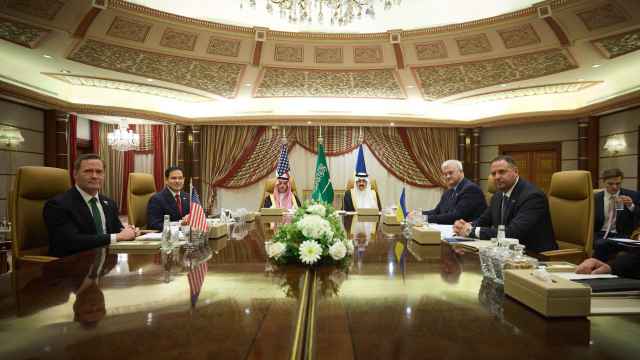A short clip from UNESCO describes the Yakut Olonkho tradition. UNESCO considers the tradition a part of world cultural heritage.
The culture minister of the Sakha republic wants the world to know that the plot of James Cameron's box office hit "Avatar" was directly copied from an epic poem tradition that originated in the Siberian republic.
"Even 20 years ago, I insisted that we must develop Yakut films, otherwise the American film industry would make films based on our thoughtful epics. Now we see that Cameron's film 'Avatar' is based on themes of the epic Olonkho," Culture Minister Andrei Borisov said at a meeting with participants of a festival celebrating UNESCO cultural heritage, Interfax reported.
Deputy head of the republic Dmitry Glushko made the same claim to a Moscow Times reporter on the sidelines of the "Russia Is a Sports Power" conference in Yakutsk last week.
The epic tradition, Olonkho, also gives its name to the tradition's most prominent story, a 15,000-line opus told by folk storytellers and singers in performances that can last up to seven days.
The minister, also a part-time film director, noted that UNESCO considers the Olonkho tradition a masterpiece of intangible cultural heritage and that it is widely popular among young people.
The minister did not clarify which elements or stories he considered to be the sources upon which Cameron drew for the film's story, which is based on a tribe of human-like creatures whose planet and existence is threatened by humans seeking to mine a precious mineral.
This is not the first accusation of plagiarism leveled against Cameron's film, which has grossed nearly $3 billion worldwide since its 2009 release, according to IMDB. Russian science fiction author Boris Strugatsky said the plot was taken from his novel "World of Noon," while Chechen writer Ruslan Zakriyev said the film was based on a novel he wrote.
A Message from The Moscow Times:
Dear readers,
We are facing unprecedented challenges. Russia's Prosecutor General's Office has designated The Moscow Times as an "undesirable" organization, criminalizing our work and putting our staff at risk of prosecution. This follows our earlier unjust labeling as a "foreign agent."
These actions are direct attempts to silence independent journalism in Russia. The authorities claim our work "discredits the decisions of the Russian leadership." We see things differently: we strive to provide accurate, unbiased reporting on Russia.
We, the journalists of The Moscow Times, refuse to be silenced. But to continue our work, we need your help.
Your support, no matter how small, makes a world of difference. If you can, please support us monthly starting from just $2. It's quick to set up, and every contribution makes a significant impact.
By supporting The Moscow Times, you're defending open, independent journalism in the face of repression. Thank you for standing with us.
Remind me later.





